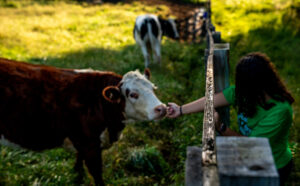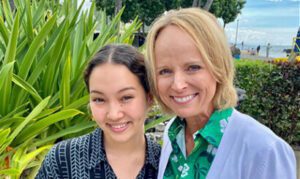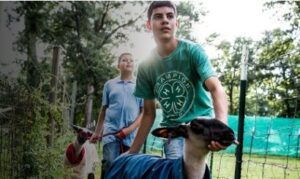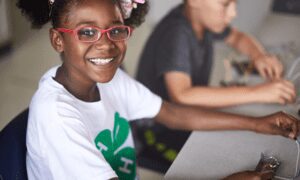Conversations with more than 80 funders, nonprofit leaders, and other experts highlight the urgency and mindset shifts needed to unlock capital and invest in the region.
BOSTON—August 24, 2023—Funders with fresh mindsets have a timely opportunity to invest in the Black rural South and help the region access large-scale funding that has the potential to fuel economic mobility, according to a new research study published today by The Bridgespan Group and National 4-H Council.
Of the approximately 200 rural counties in the South with Black populations of 25 percent or more (“the Black rural South”), all but two land in the bottom half for upward mobility for young people, previous Bridgespan and National 4-H Council research found. Yet these communities, with rich social and cultural capital, have contributed disproportionately to building the nation’s wealth and have tremendous ability to continue contributing to opportunity in our country with investment, particularly in our youth.
Mike Soskis, Bridgespan principal and co-author of the report, says, “The opportunities for impact are there: We’re seeing some funders moving from framings or misconceptions that deter investment to mindsets that can help fuel economic mobility for young people. And they’re noticing the tremendous opportunities and leaders in the region.”
According to a U.S. Department of Agriculture report, approximately 30 percent of Black residents in non-metro areas live in poverty—a higher rate than any other race or ethnic group, urban or non-urban.
The Black rural South also sits at the intersection of three philanthropic funding challenges, according to the new study: Rural communities see less funding than their metro counterparts; the South has historically been substantially underfunded; and leaders of color systemically receive less funding than white leaders.
“Still, in our conversations with more than 80 funders, nonprofit leaders, 4-H staff at historically black colleges and universities (HBCUs), researchers, and field experts, we found much to be excited about: Caring communities and innovative organizations are employing a number of promising approaches to support economic mobility for young people in the Black rural South,” says Angie Estevez Prada, Bridgespan consultant and report co-author.
The report highlights examples from leading funders in the region and articulates four mindset shifts more philanthropists must make to take advantage of the numerous opportunities that exist:
- The Black rural South is likely more integral to funders’ existing work than it might appear—and worthy of a special look. Funders seeking to move the needle on equity and economic mobility in the U.S. cannot be successful without addressing this high-need region, which is closely tied to the country as a whole through migration and wide-reaching public policy.
- One committed funder can make a difference while field testing approaches for more enduring change. There are many entry points for funding, including strengthening schools, broadband access, cradle-to-career supports, and even direct cash transfers. Each opportunity needs more funding to test which strategies will work best in places of persistent poverty.
- The social return on investment in the Black rural South is high if philanthropy is willing to think about impact differently. Advancing economic mobility in the Black rural South requires depth, not breadth. Funders willing to invest in smaller populations and exercise staying power can reach entire communities and truly change systems.
- Funders have excellent partners for giving in the Black rural South—if they know where to look. Funding in the region is highly relational; many local intermediaries know what communities want and need and can work with movement leaders to direct funding. The report highlights potential partners, including HBCUs and national networks with affiliates in the region, that are already working with young people–and could do much more with additional funding.
“Creating pathways to opportunity for young people in the Black rural South is difficult. But for funders willing to adopt these mindsets, this is an area where even one funder, especially one funder, can help enact positive change,” says Tay Moore, former member of National 4-H Council’s Youth Alumni Advisory Committee and Board of Trustees. “The Black rural South is ready. The region is hungry for change and deserving of investment.”
















